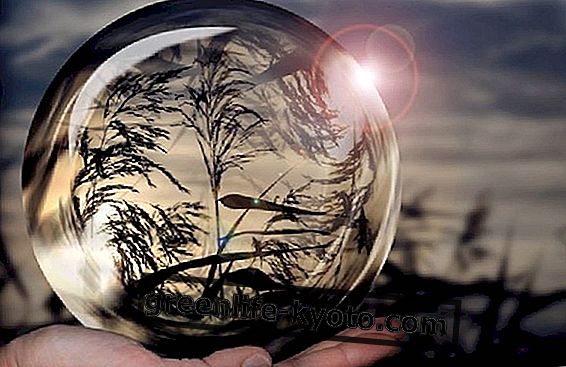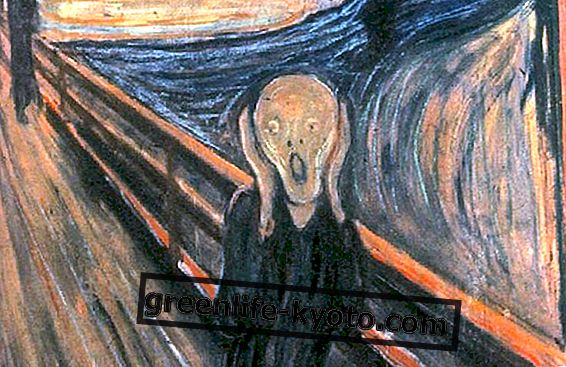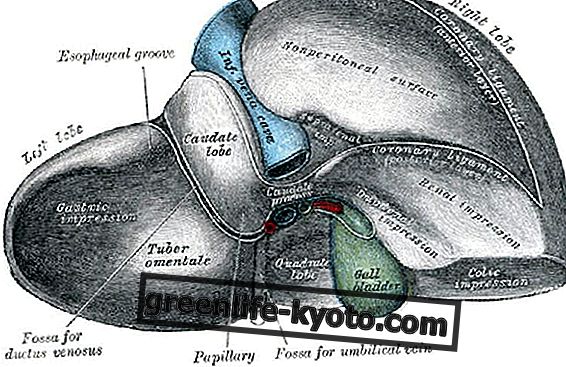
I met Carlo Barbera in Pantelleria, where I arrived thanks to a very special person in my life.
I was missing the meditation appointment for a while and I was just getting a little understanding about my life and maybe the two things were connected.
I don't make it long: I got to know a wonderful man who, in the green and sacred silence of a rather unique island, carries on a work of translation and frightening transmission.
With the extraordinary little dog Bimba by his side, as well as being himself a practitioner of meditation that focuses on self-awareness, Barbera is a person with a luminous essence, simple and profound together.
With him we talk about the lesson embodied by Sri Ramana, his history, his greatness, the fundamental message at the base of his work and dissemination on the occasion of the release of Le Tre Gemme - The fundamental teachings of Sri Ramana ”.
The only way to start this interview is to report a portion of the text taken from the Introduction by Carlo Barbera to 'Le Tre Gemme' :
Sri Ramana lived on this earth in human form from 1879 to 1950, and during his stay among men, spent almost entirely in silence, at the foot of the sacred hill of Arunachala, he traced, with a few words written or only pronounced, the the essence of his experience, which led him, at the age of sixteen, to fully know the true nature of being, to extinguish forever the onset of false identification with what is not real, the ego, which it is the root-thought 'I am this body', and to dissolve and merge in the absolute non-dual totality of the pure self-awareness of being. On the basis of this absolute and definitive experience his words were intended to reveal the nature of the eternal and non-dual reality and the means to permanently realize it as the very essence of one's true self. Thus from the infinite ocean of silence, through the name and form of Sri Ramana, poured merciful words, few, simple and logically coherent, but immutable and eternal, like the very essence of reality, manifested in the dream that we all share and that we call time and space, our body and the world in which we live.
Michael James, with the guidance of Sri Sadhu Om (direct disciple of Sri Ramana) was in charge of the English translation from Tamil of the fundamental works of Sri Ramana, Carlo Barbera of the Italian translation of the specific translations of James. And it has made us a magnificent work, it has carried out an indispensable job with the utmost care, devotion, without useless identifications or breathlessness but with a just, necessary, somehow truly unique push.
When did you meet this teaching?
My journey of inner research has been long and has led me to study and practice different ways of awakening and inner realization. The common denominator of all my research was that of knowing, revealing strength, the nameless and formless presence that, as a boy, occasionally overwhelmed me, flooding me with a boundless and unknown power and infinite love, power of someone or something that called me to itself, in an invisible embrace that never left me.
Over time I have given this mysterious force various names and various faces, which have changed in my mind, making me take a journey, a search, which has been my whole life . I have known and studied Advaita Vedanta (non-dualist Indian philosophy) in the works of Sankara (theologian and founder of this Indian philosophical school), for about 25 years, but only a few years ago I met Bhagavan Ramana and his non-dual teaching, and I was totally struck by it.
What is a wise management of emotions and what are they in Sri Ramana's vision?
According to the teaching of Sri Ramana the whole human being (composed of five sheaths covering the self, physical body, energetic body, mental body, intellectual body, causal body) , the world and all the infinity of phenomena that compose it, are an illusory projection of the mind.
Our phantom ego, which is the illusory substance of the person we believe to be, to stand and thrive needs to project and grasp a body and identify it as itself, as an entity separate from the world and the phenomena with which it interacts.
Emotions are obviously an important element of the sphere of our person, strictly connected first of all to desires and aversions and to the constant flow of thoughts, but being a projection of the illusory ego, all this is also illusory, in reality of the same consistency as a dream from which we wake up in the morning to realize that it was only the fruit of a mental imagination .
So the wisest way to interact with emotions, as with thoughts, is to let them arise . When you have remembered yourself, the subject who is present and self-aware, the emotion will have already been managed in the wisest way, that is, it will have returned to being pure awareness, and in any case dissolved in itself.
Emotions in the path of yoga
Neti neti is a term that in Tamil means the process of eliminating what is not me. What could we mistakenly mistake, or exchange for myself?
Within our usual perception of ourselves, at the origin of our primary thought 'I', which is the ego-mind from which our body is projected and everything we experience different from ourselves, the eternal shines I, absolute, without second, devoid of any addition and otherness, the unique self that is at the origin of every sentient being in this world. It is light of pure self-awareness, a reflection of which generates an illusory and separate body, confuses it with itself and projects outside itself an entire universe with which to interact dualistically.
So what we fundamentally and primarily confuse with 'I' is our body, the primary form that the ego-mind projects before projecting any other form other than itself.
Moreover, whoever confuses 'I' with a body is our ego, which is just a formless phantom, an illusory reflection of what we really are, that is light of pure self-awareness. Reason why, Sri Ramana wrote in verse 25 of Ulladu Narpadu: Grasping the form, the phantom ego without form originates, grasping the form it holds up; grasping and feeding on form, it thrives profusely; leaving a form, it takes another form. If sought, it will take flight. Investigate accordingly.
Sri Ramana not only describes us the nature of the ego with masterly simplicity and evidence, but it also clearly provides us with the means by which we can dissolve it directly. The means by which to completely annihilate the ego is to look for it in its place of origin and to investigate what this ego really is, a search expressed symbolically in the question 'who am I?', But which is spontaneously done simply and attentively by itself aware. The behavior of the ego that, if sought, will take flight, demonstrates its evanescent nature, its inconsistency, its unreality. To his annihilation what remains is only 'I am I', unlimited and pure self-awareness .
Arive nan is the knowledge of the self. The way we are educated by parents, social laws, can slow down this knowledge which is the highest and most noble?
I am only awareness, Sri Ramana replied to the first question asked by Sivaprakasam Pillai in 'Nan Yar?'. This knowledge-awareness never abandons us, because if it were not in us always existing and resplendent we would not exist nor could we delude ourselves, as we do, to exist as ego-persons. Human existence is the fruit of this illusory process and is necessarily directed towards the outside of us, where we project the world and all our troubled existence.
Education and social laws are part of this dream world, it is obvious that they slow down or rather blur the fundamental knowledge, which is what we really are. The important point is not to avoid the limitations of social laws or to deprogram yourself from the education received but to engage, with self-attentiveness, this uninterrupted flow of awareness that underpins our dream of existing as people, and try to hold on to us more likely. By doing this all that makes up our person and this world will be seen as a dream, and we will be perfectly aware that we are also that dream but that that dream is not what we really are .
What is the relationship between the search for "who am I" with all the esoteric and mystical schools that need to get rid of the ego?
All schools, traditions, religions, ultimately, in one way or another and to varying degrees, require to get rid of the ego, or at least to submit it to God.
The search 'who am I', proper to the teaching of Sri Ramana, and that in essence is the simple practice of persevering self-attentiveness ( atma vicara ), concentrates all the attention of the mind only and exclusively to itself, which could seemingly a strengthening of the ego. But as Sri Ramana says in verse 25 of Ulladu Narpadu, if we seek the ego, that is, if we subject it to careful observation, it will take flight, that is, it will disappear, as it is only an illusory imagination, a phantom without form and without substance .
This process of observation and spontaneous dissolution can begin at partial levels of observation and relative weakening of the ego, and then deepen into a perfect, absolutely penetrating, completely focused observation, that is, looking solely and exclusively at the exclusion of each another thing, which will determine the complete annihilation of the ego. Being the ego-ego, according to the teaching of Sri Ramana, the foundation and source of duality, of the body and of the phenomenal world, this practice proves to be the only truly effective and certainly decisive means to dissolve not only the ego but also everything that derives from it.
Moreover, if we confuse a rope to the ground like a snake, the only effective way to see that it is actually a rope is to observe what looks like a snake in a careful and close way. In the same way, if we observe ourselves with total attention, the illusory ghost of the ego will disappear, and what has always been, what we really are, pure self-awareness will remain resplendent.
So all all the schools, traditions, religions that require us to free ourselves from the ego by whatever means is not this careful and focused observation of ourselves but involving actions of the body, of the voice-energy or of the mind, that is anything different from what we really are, they are at best prescribing practices that do not dissolve the ego but that can produce only a certain degree of purification, practices that must ultimately merge into the only truly effective and decisive practice to see what really is this I-thought, that is, observing it with exclusive attention to dissolve it and see what we really are.
What are the practical tips to approach an effective self-investigation?
Self-investigation is not a practice that requires specific positions of body, voice and mind, pre-established sessions during the day, and preliminaries of any kind. Self-investigation is not even a practice, because it consists only in being aware of ourselves, which we always are, even if we are simultaneously aware of many other additions to ourselves that make up our person and of infinite other phenomena that compose the world we live in. But at a careful self-observation all this thins out immediately leaving more and more a glimpse of the resplendent reality that underlies it, until it dissolves completely and forever.
So self-investigation is only dwelling in our pure being, looking at us, with the utmost attention, with courage and sincerity, with great love, and letting what is unreal dissolves and what is real shines. Perseverance is needed, which is the only sign of truly reliable progress.
What can be "clues" that make us understand that we are not on a path of self-knowledge and investigation, but are we wasting precious energy?
The energies are wasted pouring them out of us, into the rivers and into the infinite rivulets of dualism and otherness . What derives from this is ephemeral joy and suffering.
In the path of self-knowledge the energies must go back to their only source, which is always and only ourselves as we really are. What we believe to be, this ego is a person limited by space and time, it can know and master all the sciences and the arts of this world, but it can never know the only thing that it really is, because the knowledge of the true self implies the revelation of deception and therefore the death of the ego itself.
So every time we realize we are distracted by ourselves, that precise feeling of dispersion, lack, self-forgetfulness, will not only be the clue that we are wasting precious energy but it will also be the stimulus and the strength to take back the thread of our self-attention.
Humility is a necessary condition for being inside, in one's heart. And, on the other hand, it only develops in a sincere self-observation. How to reconcile this possible contradiction?
Apparently the sincere, focused and exclusive self-observation can be understood by some as an act of selfishness, of lack of humility. As if one could practice this art and science of self-attentiveness to cultivate and nurture one's illusory personality.
On the contrary, even the inexperienced practitioner, through self-investigation, can immediately experience the first crunches and cracks of the crumbling egoic structure in which we live, and can see the first glimmers of light from the reality that leaks from the cracks of the ego and that appears as our own light of self-awareness.
The thought 'I' is the first thought, from which all other thoughts originate. In this sense the cave of the heart, where silence reigns, where being self-awareness is the totality that transcends thought, identity and form. Here space and time are not conceived, and neither karma, nor form, nor the world exists, nor have they ever existed. In the cave of the heart, the only self, 'I am I', the source in which the ego, its infinite illusions dissolve and are annihilated forever shines on its throne.
This writes Sri Ramana in verse 20 of Upadesa Undiyar: When the mind reaches the heart by investigating inwardly who I am, and when he, who is 'I', dies because of it, a thing [or the only] spontaneously appears as 'I am me'. Although it appears, it is not 'I' [the ego]. It is poruḷ-pūṉḏṟam [the whole substance, total reality or pūrṇa-vastu], the substance which is itself.
Sri Ramana had a very solitary and silent life on the sacred hill of Arunachala. How do you do today, in a feverish context and full of sounds, opinions, possibilities?
The external solicitations that can distract us today from our self-attentiveness are not so different from those of the time in which Sri Ramana had, at the age of 16, his definitive experience of total immersion and dissolution in the self.
The solicitations over time change form and perhaps intensity, with the changing historical circumstances of the world but first of all with the changing of the human mind, of which all this is only an imaginative projection. The tendency of the mind to exteriorize is experienced in the form of desires or fears, propensities or aversions, likes or dislikes, which project our attention outside making us forget ourselves.
If our intimate love to be present to ourselves, our love to be the pure awareness that, even if partially, we know to be, is greater than any desire for anything other than ourselves, our attention will remain totally focused towards what we most love, that is, ourselves as we really are, leaving to the natural course the illusory flow of the world of forms and phenomena .
A possible consequence of practicing more and more intensely the self-attentiveness can be to distance oneself from some people to whom one was connected or who were tied to us without an authentic call from the heart?
Self-attentiveness focuses the attention within us in an exclusive way, that is, to the exclusion of anything other than ourselves.
The inversion of the orientation of our attention, from the outside to the inside, certainly causes profound mutations in our mind and therefore in everything that is projected from it outside, first of all into our physical body and into all aspects of our existence as individuals and then in the world we interact with.
Coming, with our self-investigation, to the root of ourselves, we find ourselves to be that I who, at our firm and careful observation, slowly loses the boundaries of our form, revealing us unlimited expansion of pure and non-dual awareness of to be, I am I, which is the infinite whole, joy without limits.













